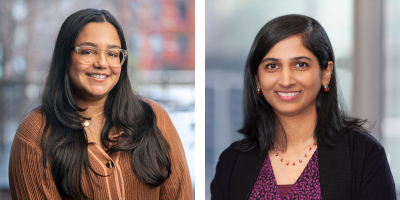
Bob Li, MD, PhD, MPH. Photo by Richard DeWitt.
A Forbes profile of MSK’s Dr. Bob Li chronicles his path from China to Australia to the United States. At MSK, he works as a Thoracic Oncologist and the Physician Ambassador to China and Asia-Pacific, Bobst International Center.
In the article, Dr. Li emphasizes the need for more global coordination and inclusivity in cancer research and care. As he says, “We’re not going to find the cure for cancer unless we solve this equity question and this access question.”
Dr. Li notes that only 5% of patients globally enroll in clinical trials, which contributes to the “process from discovery in the lab to breakthrough and saving lives in human beings [taking] about 10-plus years.”
Learn more from the Harvard Business Review article co-written by Dr. Li last year, “We Need a Global System for Testing and Approving Cancer Treatments.”
